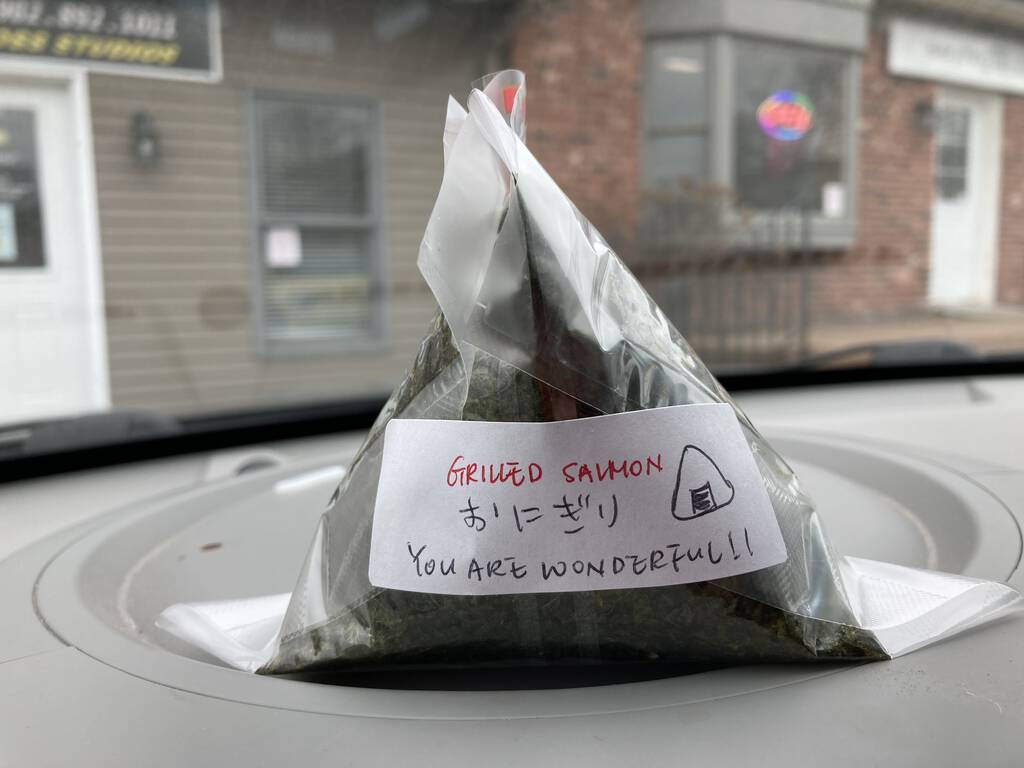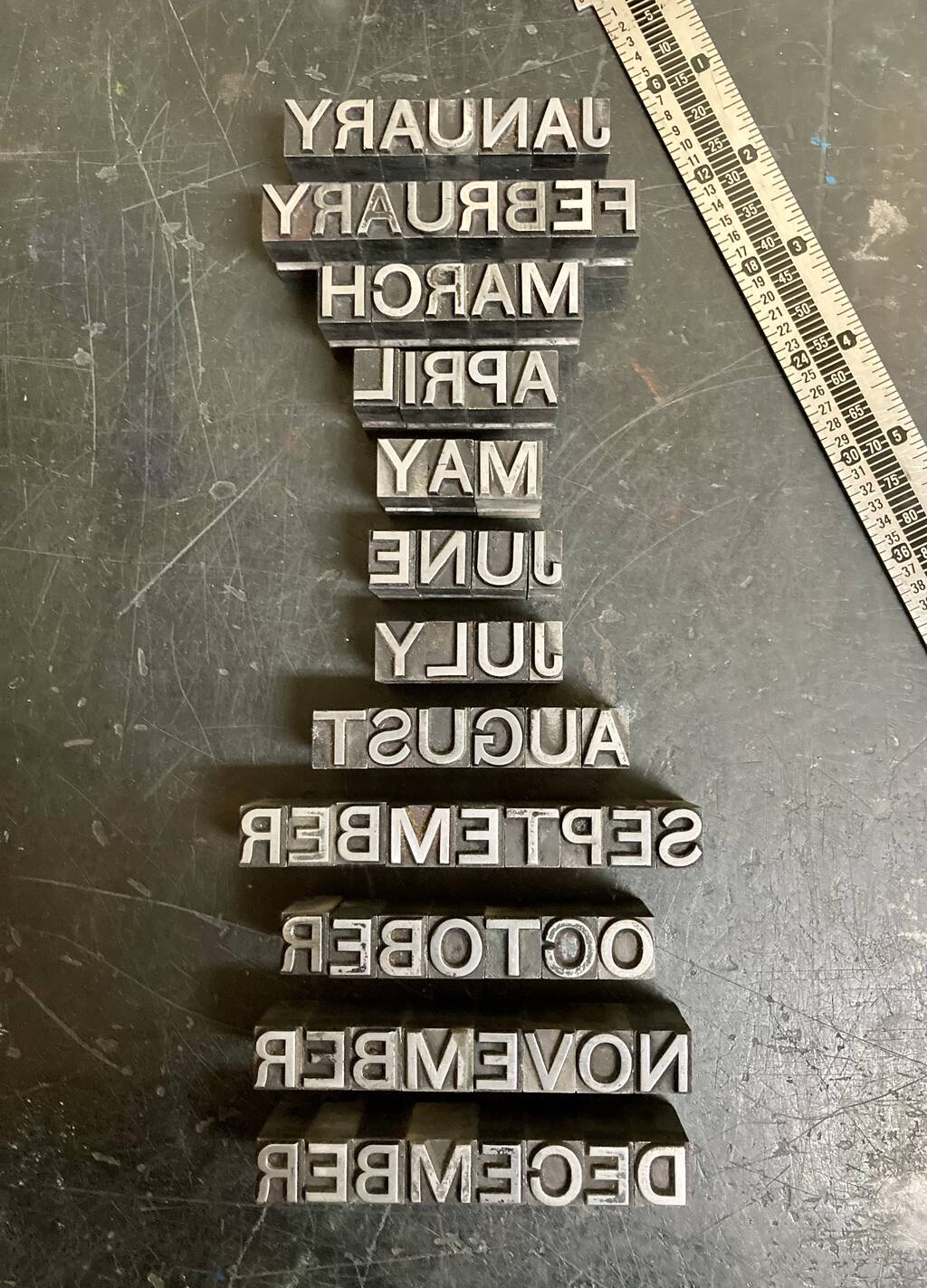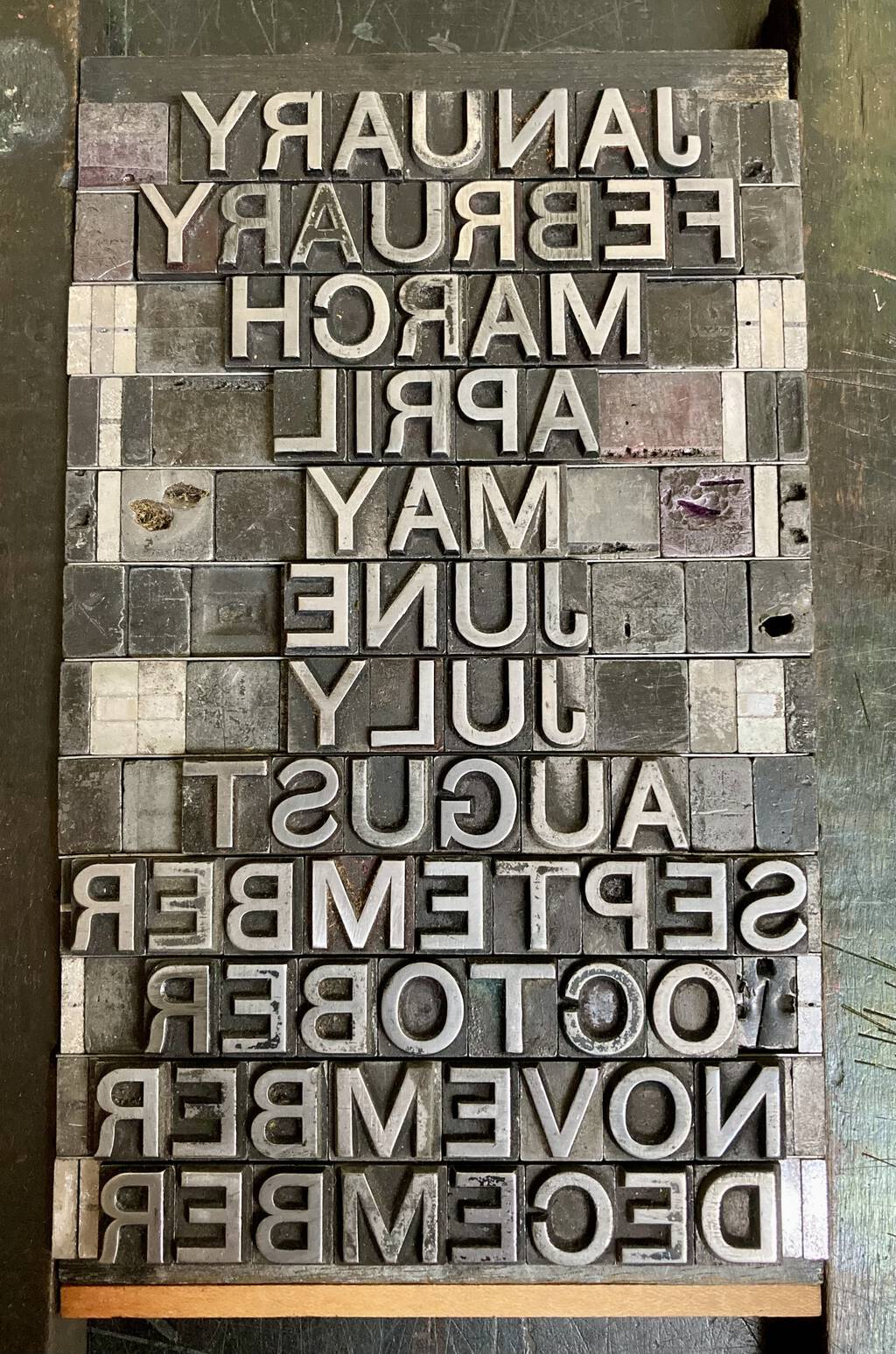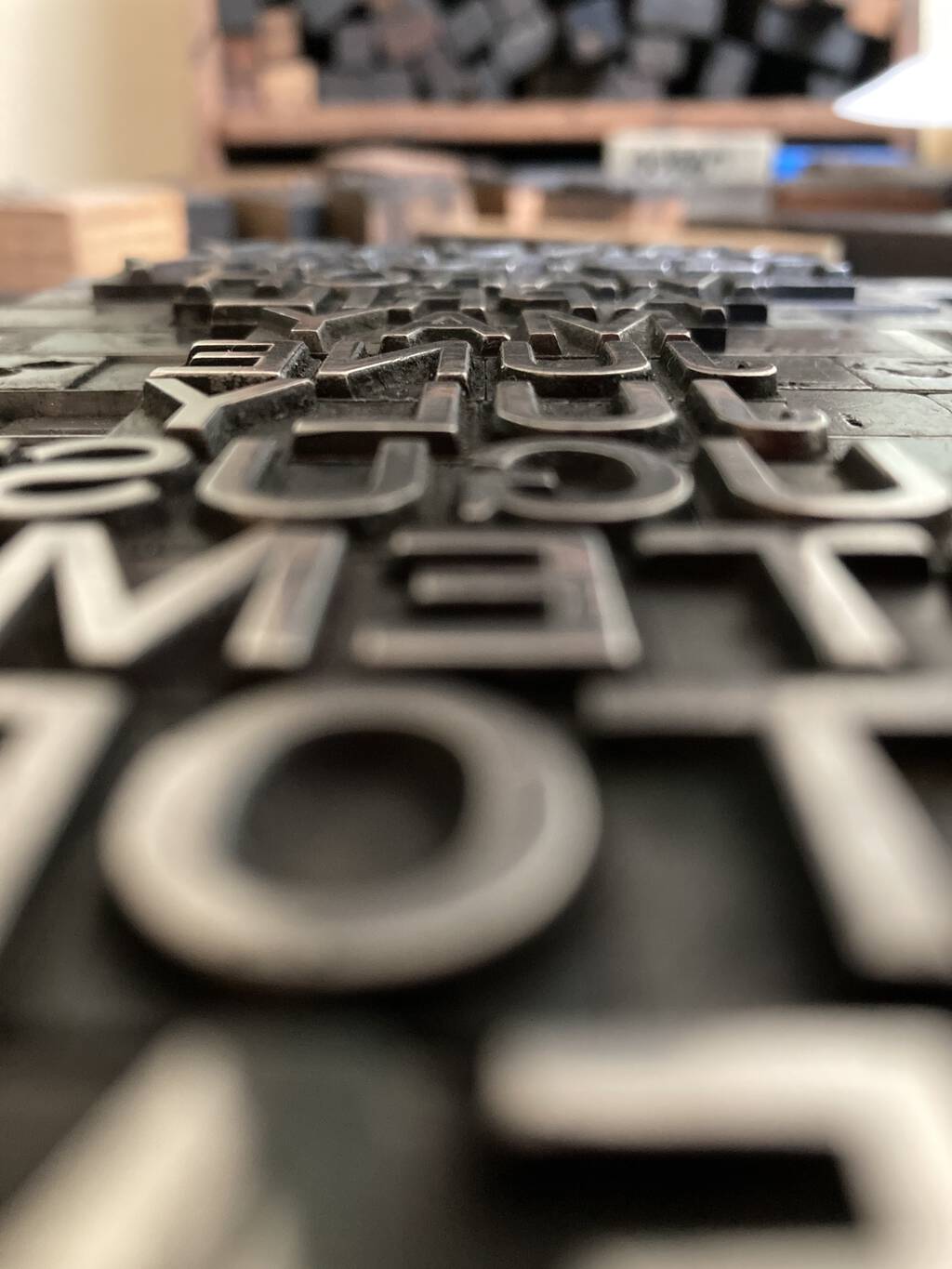There’s a new shop offering Japanese products in the Shops of St. Avards in Charlottetown, Sumikko Market.
I read a CBC News story about it back in October, but driving by St. Avards in the time since I could never seem to find it. On Saturday I decided to double down, and found it is, indeed, there, right beside “Everything IT.”
While the shop sells all manner of Japanese sundries, from candy to iced coffee, the standout for me is that from Monday to Friday, over the lunch hour, they serve onigiri–Japanese rice balls–something that heretofore there’s not been a source for in Charlottetown. They have two types, tuna and grilled salmon. And they are lovely: just the thing for a quick lunch or snack.

It’s only nine days until the Halcyon Days begin!
It’s a longer story but let’s just say that it ends tragically with Ceyx drowning at sea. Grieving Alcyone was about to throw herself into the sea to join her beloved husband. But the gods took pity on the pair, transforming them into halcyons, with the power to still the stormy seas for 14 days near the time of the winter solstice while they hatched their young.
I start with a list of the months, in a text file, months.txt:
JANUARY
FEBRUARY
MARCH
APRIL
MAY
JUNE
JULY
AUGUST
SEPTEMBER
OCTOBER
NOVEMBER
DECEMBER
Using my text editor–Sublime in my case, but you can use anything that supports find-and-replace with regular expressions, I replace:
(.)
with:
$1\n
In other words, I replace every letter with that letter followed by a carriage newline.
Which results in:
J
A
N
U
A
R
Y
F
E
B
R
U
A
R
Y
M
A
R
C
H
A
P
R
I
L
M
A
Y
J
U
N
E
J
U
L
Y
A
U
G
U
S
T
S
E
P
T
E
M
B
E
R
O
C
T
O
B
E
R
N
O
V
E
M
B
E
R
D
E
C
E
M
B
E
R
Finally I use some sort and uniq magic to product a frequency count:
# sort months.txt | uniq -c
11
7 A
5 B
3 C
1 D
11 E
1 F
1 G
1 H
1 I
3 J
2 L
5 M
3 N
3 O
2 P
9 R
2 S
3 T
6 U
1 V
4 Y
I’m now set to set type, knowing I need a font with at least 11 Es, 9 Rs, and so on.
And here’s the result:

Driven to a rectangle (where, as it turns out, the real shortages–of space material–emerged):

And a proof pulled:

Between the annual flu shot, and the COVID regime, it’s needle season. And with the approval of COVID for younger kids, it is, I can say from experience, a time of great anxiety for families of needle averse kids.
What makes needle season, if not joyous, at least palatable in our family is using EMLA creme to numb the injection site. You can buy this at any pharmacy, and the kit includes creme and a patch to cover it; it gets applied an hour before the shot.
The positive effects are twofold: it injects a dose of agency and control into a situation that otherwise seems overwhelming and lacking both, and it numbs the feeling of the needle (which, to be honest, is secondary).
Using EMLA hasn’t made needle days stress-free for Olivia, but it’s lowered the anxiety volume enough to make them possible and safe for all involved.
(EMLA, by the way, stands for Eutectic Mixture of Local Anæsthetics, something that, in an age of pharmaceutical names like Refluxatrix and Volupustonate, is refreshing simple.)
The other thing I recommend if you’re the caregiver of the needled is to talk to the pharmacist, nurse, or doctor in advance to give them a heads up. This will help prepare them, and you, for what’s to come.
And from Olivia this advice: look away, perhaps into the eyes of the person supporting you, instead of looking at the needle. It helps, she says.
Olivia has just had her COVID booster—they opened the floodgates to everyone 18+ yesterday and I jumped on an appointment for this morning, around the corner at Lawtons, minutes later—and it was quick and injury-free.
“It’s going to be a nice day today,” she declared.
The sun had climbed higher. The whole island, and the sea, were glistening. The air seemed very light.
“I can dive,” Sophia said. “Do you know what it feels like when you dive?”
“Of course I do,” her grandmother said. “You let go of everything and get ready and just dive. You can feel the seaweed against your legs. It’s brown, and the water’s clear, lighter towards the top, with lots of bubbles. And you glide. You hold your breath and glide and turn and come up, let yourself rise and breathe out. And then you float. Just float.”
From The Summer Book (via Hundred Rabbits)
James A. Reeves, in part:
There’s nothing sane to do except remain vigilant and uncertain. And that’s the hardest thing, isn’t it? Remaining uncertain until the shape of a thing becomes clear.
Yes.
I make the mistake—I think it’s a mistake—of assuming the Algorithm is serving y’all up the same new tracks as it’s serving up to me.
So, for that reason only, I point you to Day After Tomorrow from Phoebe Bridgers, a cover of the Tom Waits original: just to ensure it doesn’t escape your attention.
The track joins Have Yourself a Merry Little Christmas (2017), Christmas Song (2018), Silent Night (2019) and If We Make It Through December (2020, my favourite) in her pantheon of holiday season releases.
I am, needless to say, a fan.
Last week I rode Jack for the first time, and felt compelled to document the experience.
I rode Jack again today, and learned even more. Jack will be the horse I successfully “post” on, I think; I don’t have this down yet, but I’ve been practicing, and I know enough now to know what I don’t know.
I’m also getting increasingly self-contained with saddling Jack up; again, I’m not there yet, but I’m at 90%, and I’m pretty sure in a “saddle the horses, the Cylons approach!” emergency situation I could hold my own.

 I am
I am